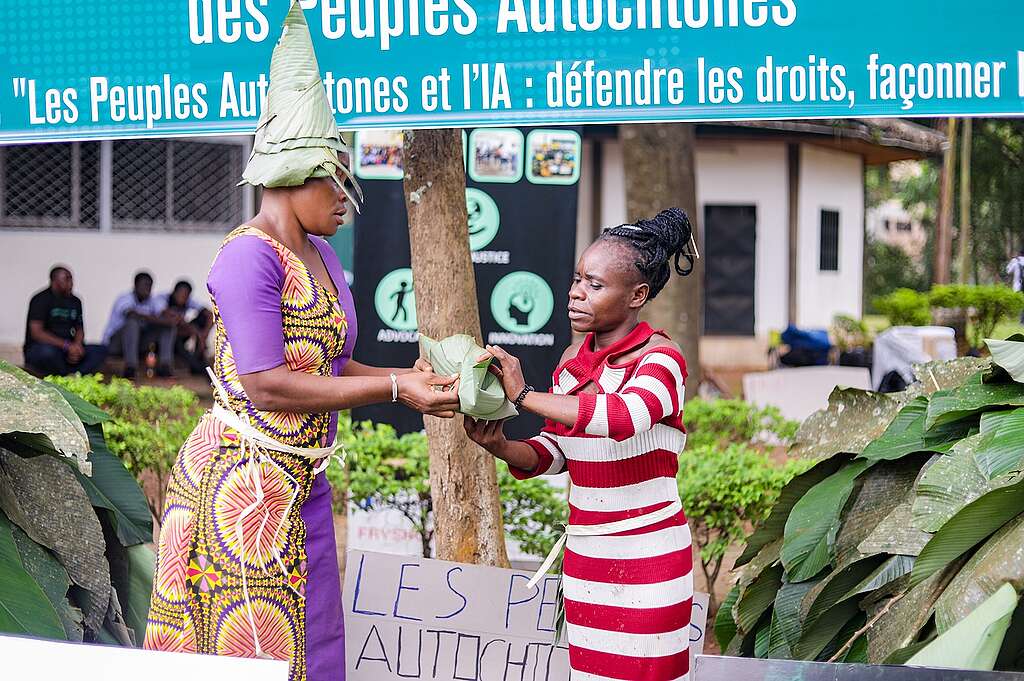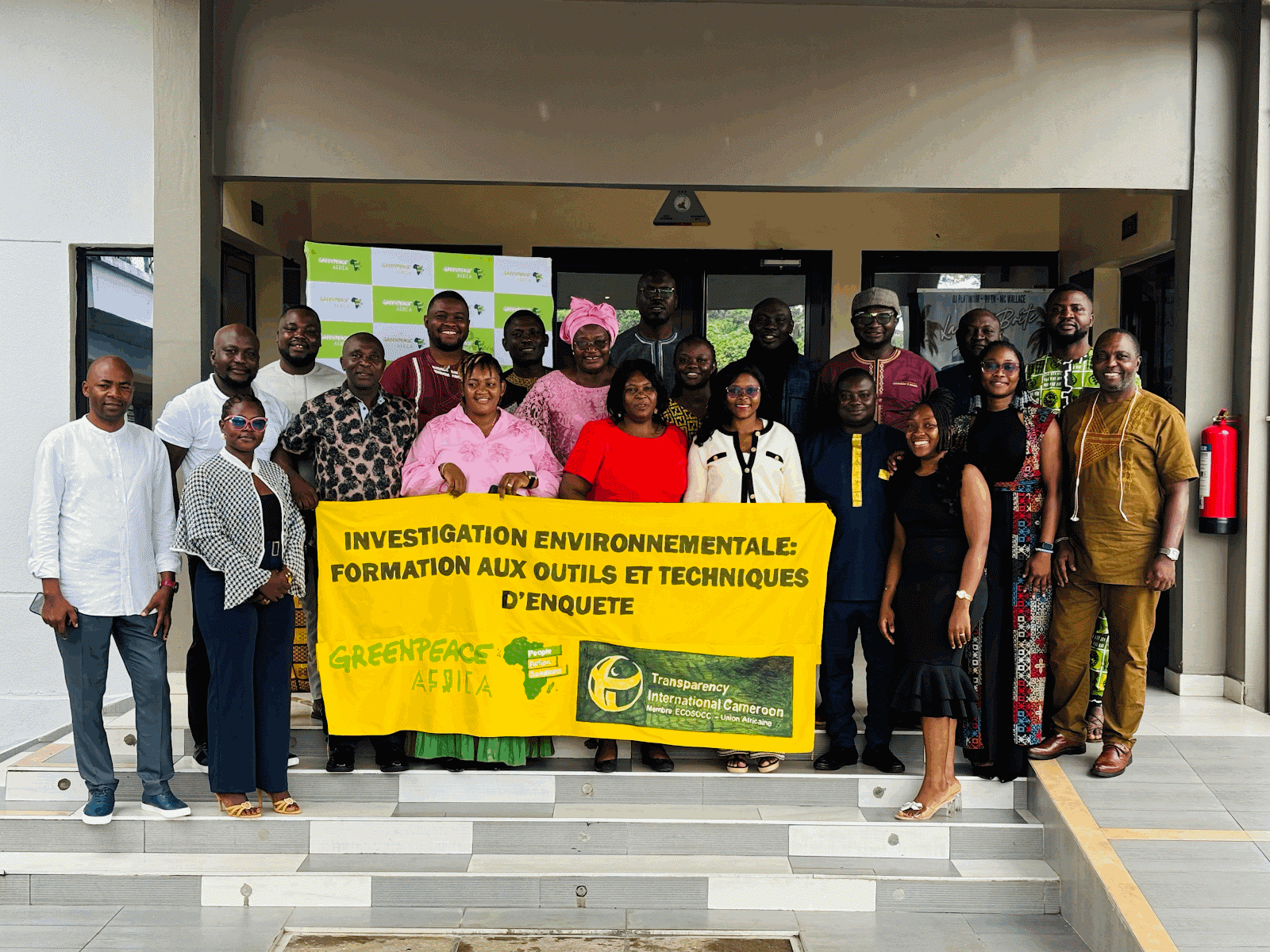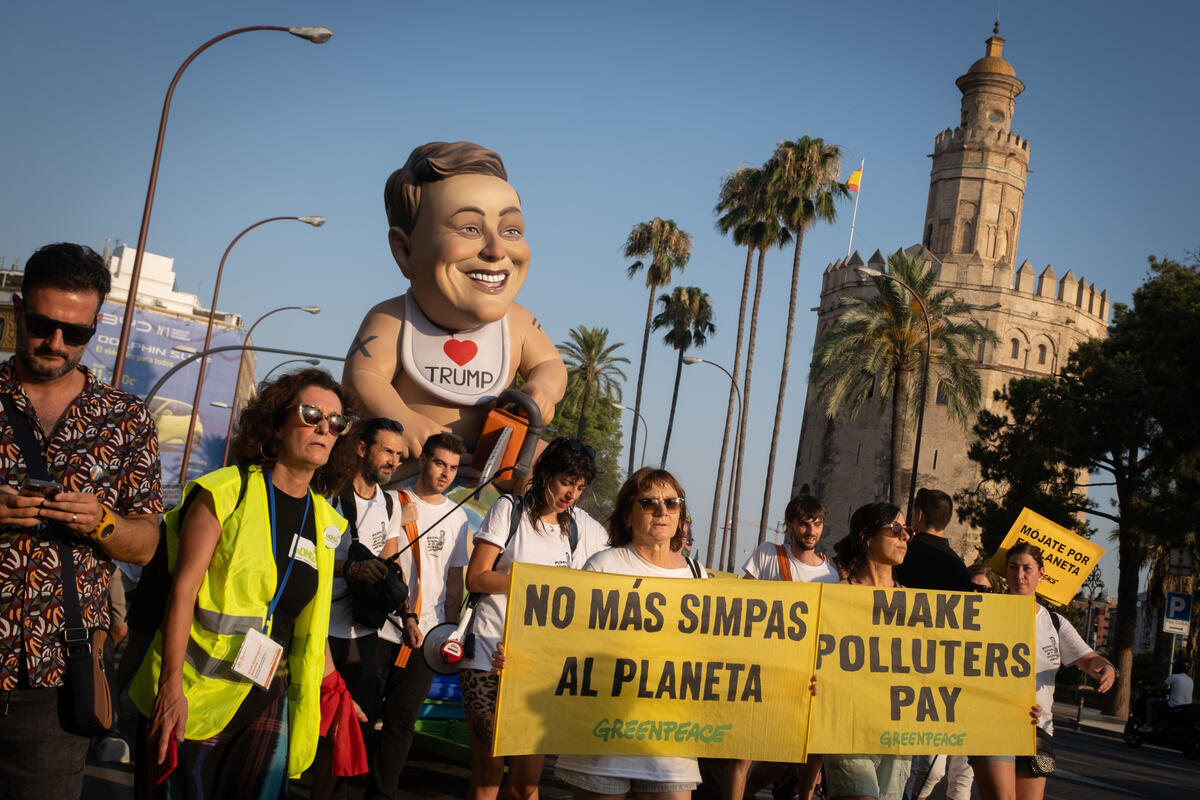
Yaoundé, 11 August 2025 – On Friday, 8 August, Bois Sainte Anastasie came alive with the sounds of songs, stories, and the demands of Indigenous Peoples. On the occasion of the 31st International Day of the World’s Indigenous Peoples in Cameroon, Greenpeace Africa brought together a diverse audience: Indigenous communities, traditional authorities, government representatives, members of the Climate Justice Movement (CJM), youth, key influencers, volunteers, local and international media, and many citizens eager to discover and share this moment.
The day began with a groundbreaking press conference that gathered Indigenous chiefs, community leaders, NGO representatives, and officials from the Ministries of Forests, Social Affairs, and Territorial Administration. At the heart of the discussions was a surprising and ambitious theme: “Indigenous Peoples and Artificial Intelligence: Defending Rights, Shaping the Future.” This rich exchange shed light on the urgent challenges facing savanna and forest communities, while exploring how new technologies could become tools to support their resilience and rights.
“The assimilation policies and acts of marginalization that Indigenous Peoples have endured for decades have profoundly and negatively disrupted their way of living. Deprived of their forests, lands, and traditional territories in favour of logging, mining, and agro-industrial exploitation, they are also bearing the full brunt of climate change. All these factors worsen their living conditions every day,” said Stella Tchoukep, Forest Campaigner at Greenpeace Africa.
Particular attention was given to both the opportunities and challenges of using artificial intelligence. Used wisely, AI could become a powerful tool for protecting the rights of Indigenous Peoples.
“When combined with participatory mapping, artificial intelligence helps to document and visualise the ecosystems, territories, and practices of Indigenous Peoples. But for this tool to deliver on its promise, it is imperative to recognise and secure these peoples’ rights to their natural resources, especially their lands and forests,” stressed Stella Tchoukep.
The celebration turned into a living fresco: powerful skits, vibrant poetry, human banners bearing strong messages, and colourful cultural performances gave life to the spirit of Indigenous Peoples. Voices, rhythms, and gestures vividly portrayed the deep, physical bond that ties them to their territories, — a bond that shows the forest is not just a living space, but also an identity, a culture, and the cornerstone of a sustainable collective future.
“For over 30 years, Indigenous Peoples have been celebrated in Cameroon, yet they still have no legally recognised status. They struggle to secure spaces to live and carry out their activities, even though they are the true guardians of the forests. The time for speeches is over; we need courageous decisions. Action must be taken, concretely and now, in their favour,” concluded Stella Tchoukep.
Throughout the interventions, a clear consensus emerged around three priority demands: the legal recognition of the status of Indigenous Peoples and the securing of their land and forest rights; direct and equitable access to climate finance; and the institutionalisation of a regional Congo Basin Day.
For Greenpeace Africa, these measures must be implemented without delay. The organisation calls on decision-makers to guarantee the direct participation of Indigenous Peoples in decisions that affect their lives and territories, and to place their traditional knowledge at the heart of climate strategies. Greenpeace Africa urges decision-makers to take the necessary measures to ensure the direct participation of Indigenous Peoples in decision-making processes that impact their lives and territories, and to make their knowledge a central pillar of climate strategies.
End
Contact:
Luchelle Feukeng, lfeukeng@greenpeace.org, +237 656 46 35 45



